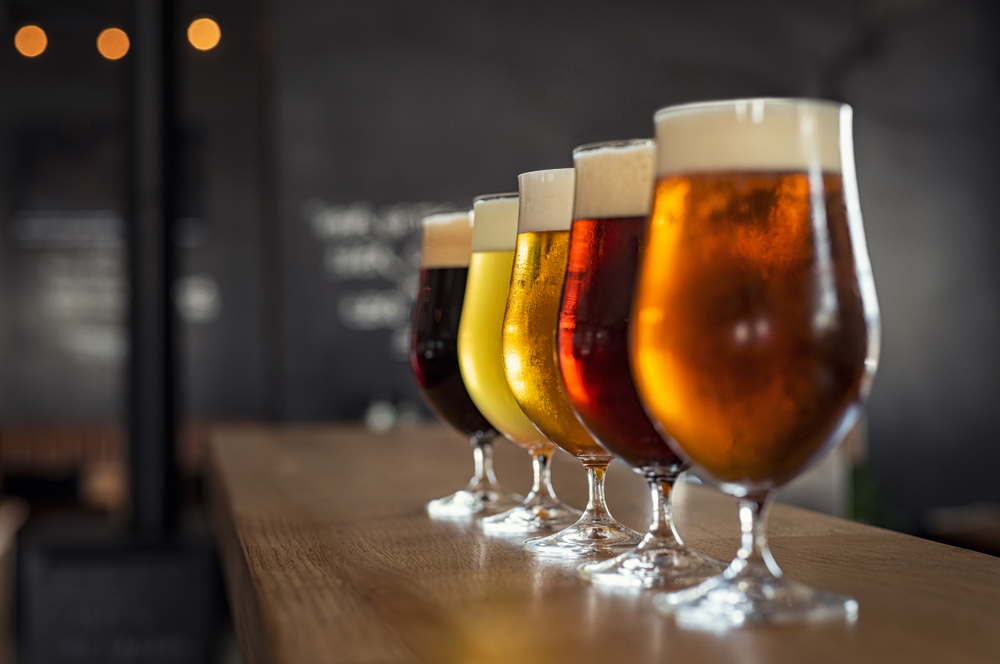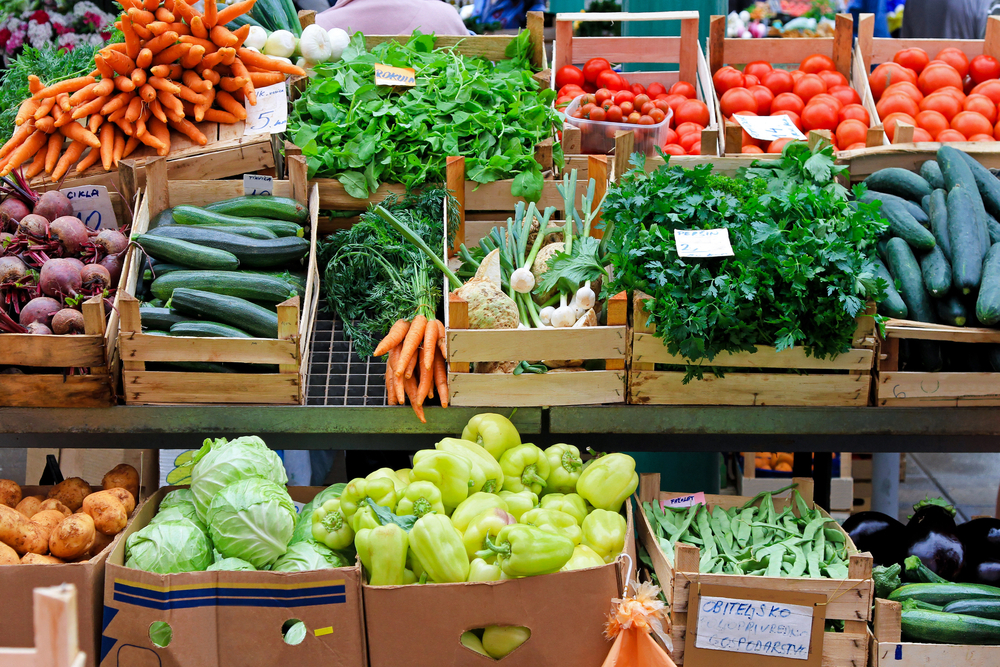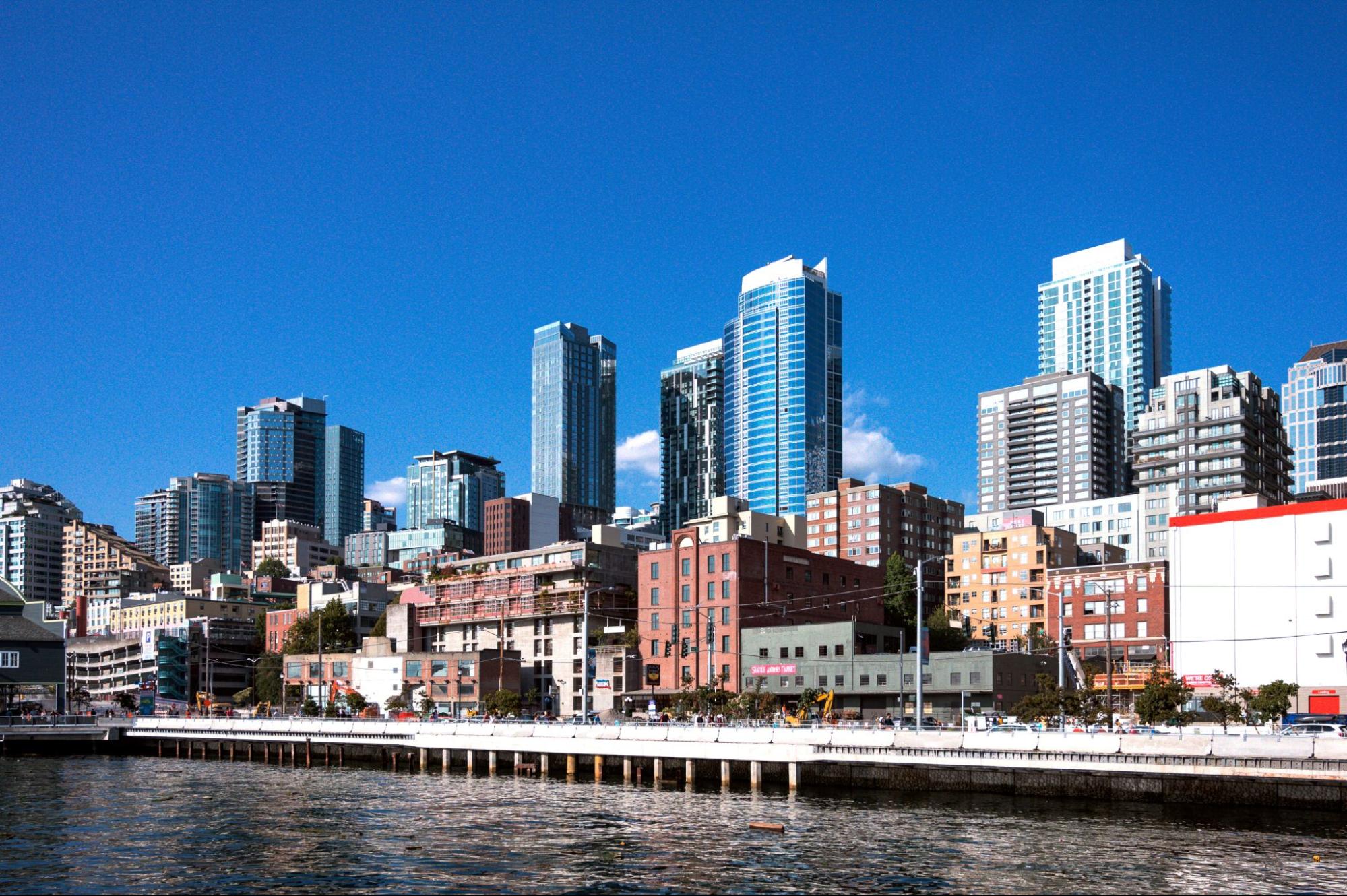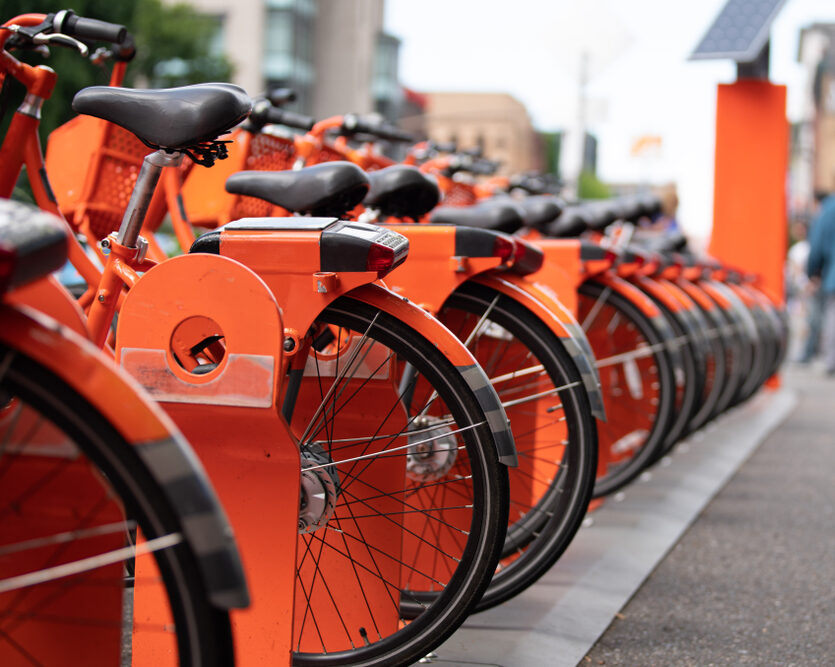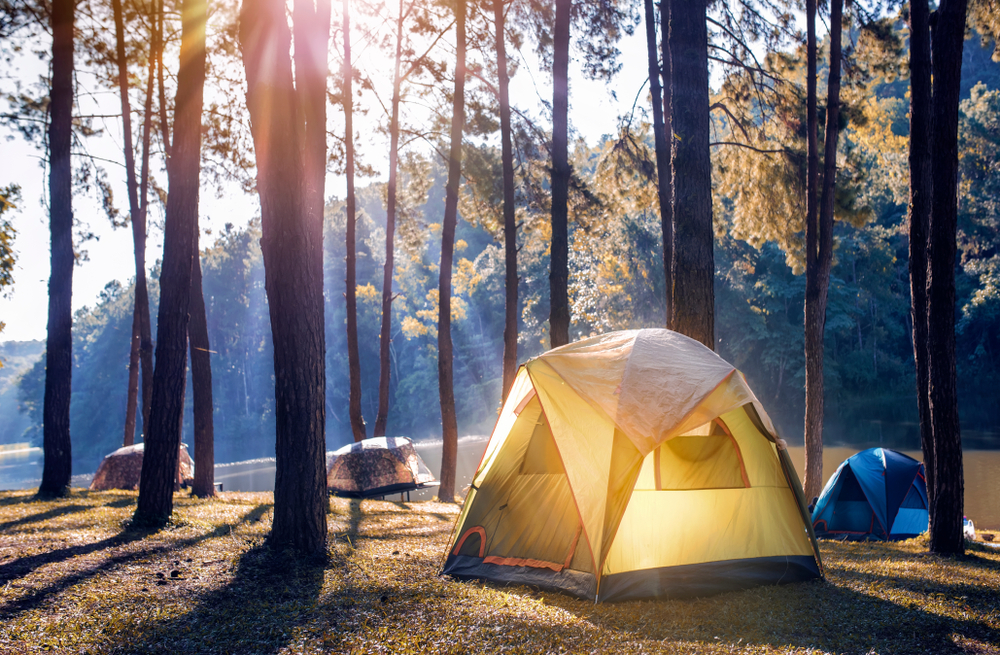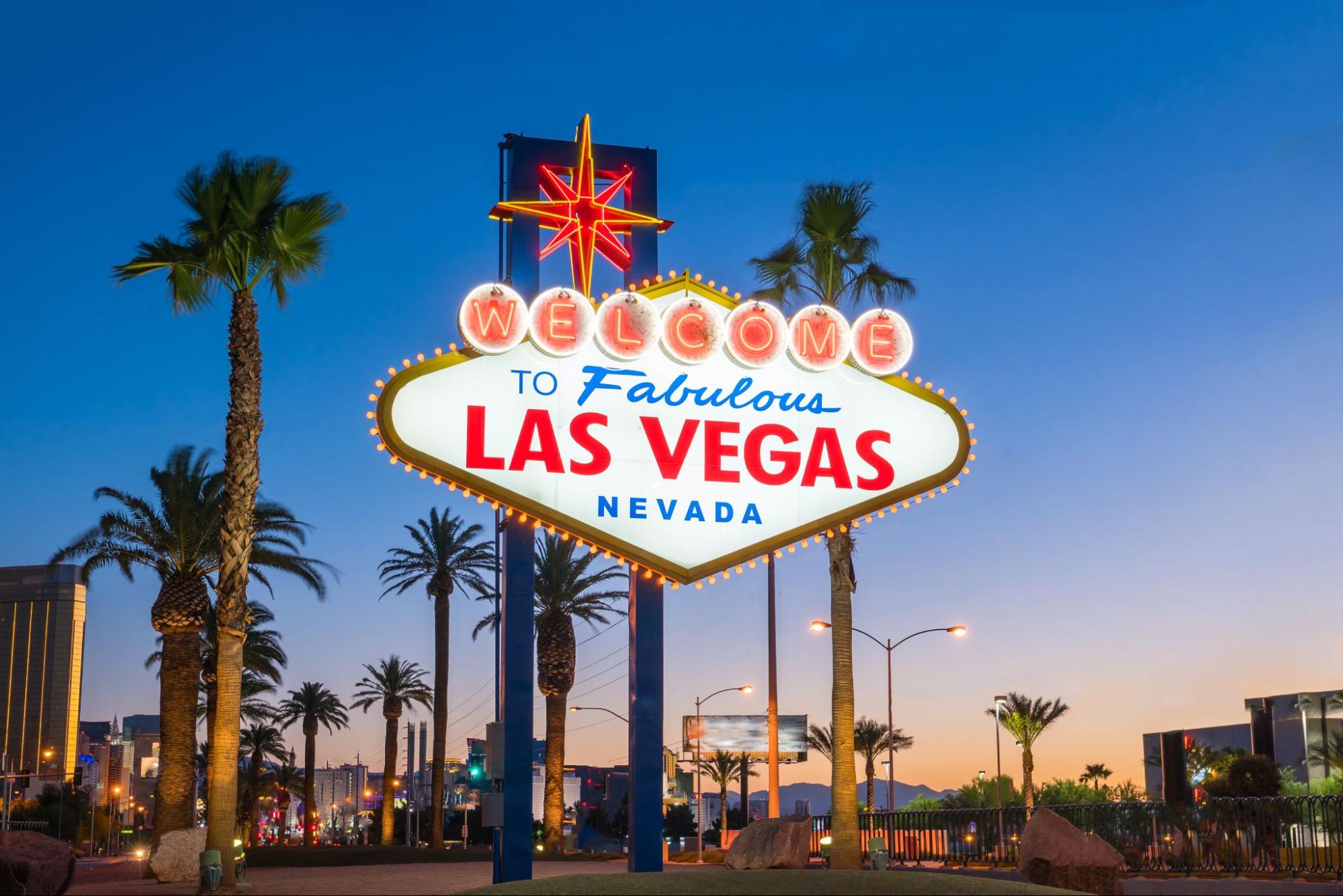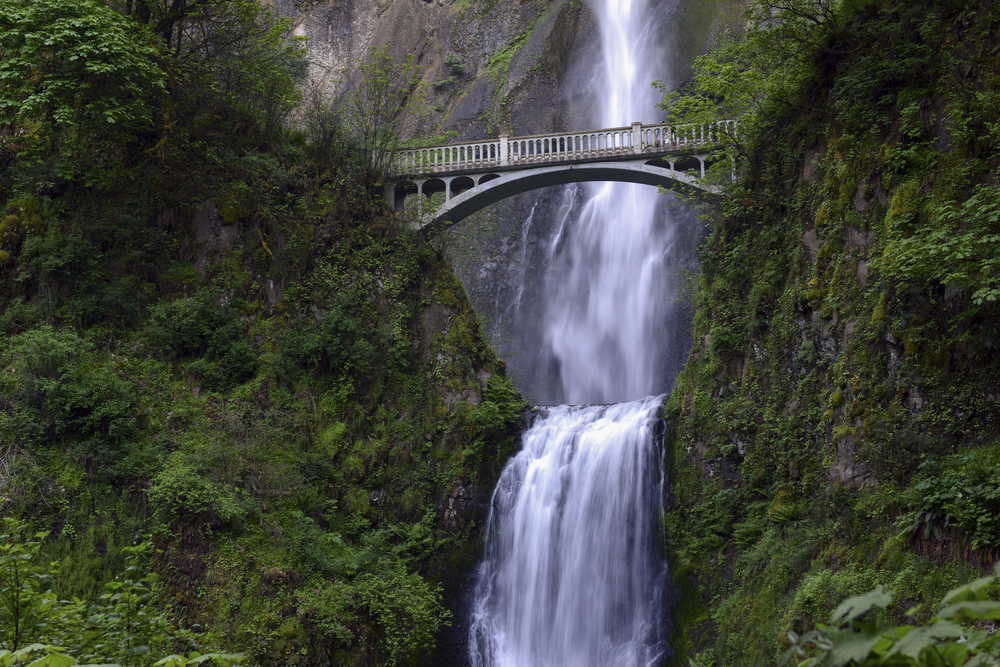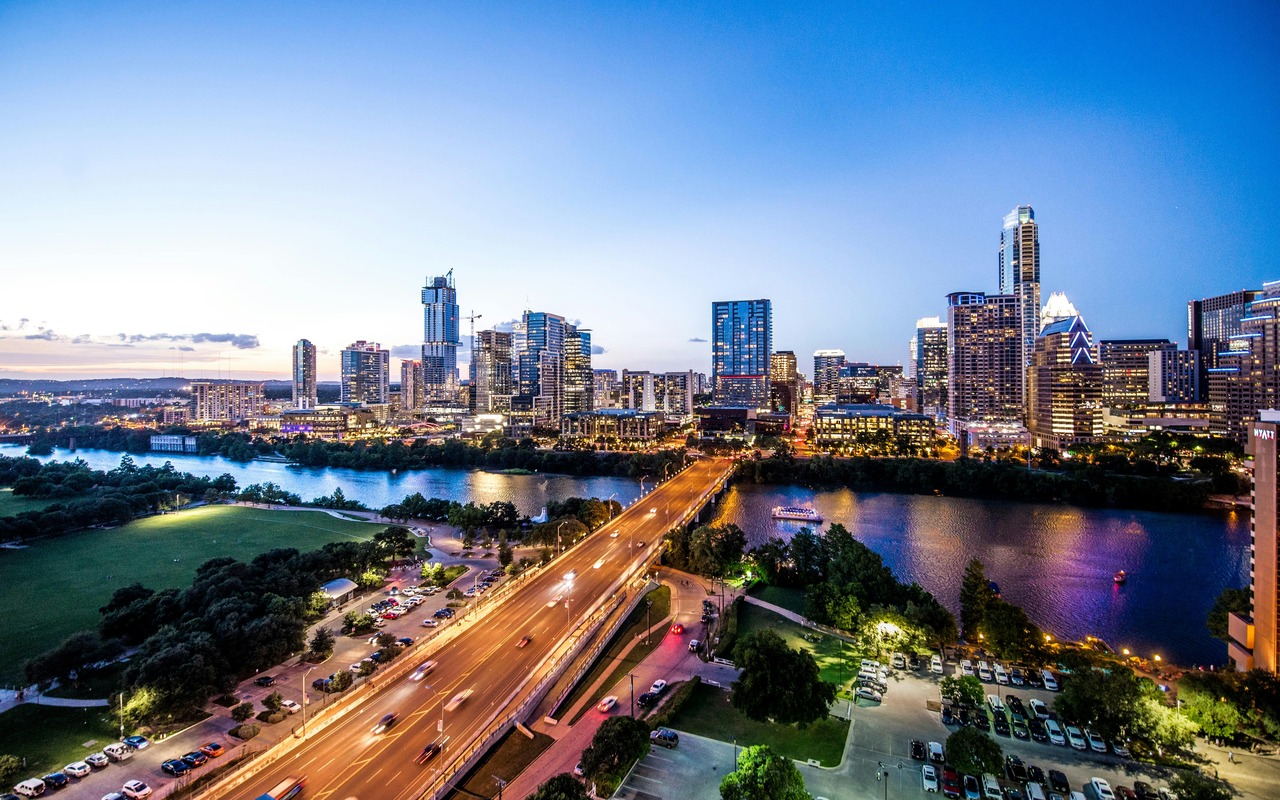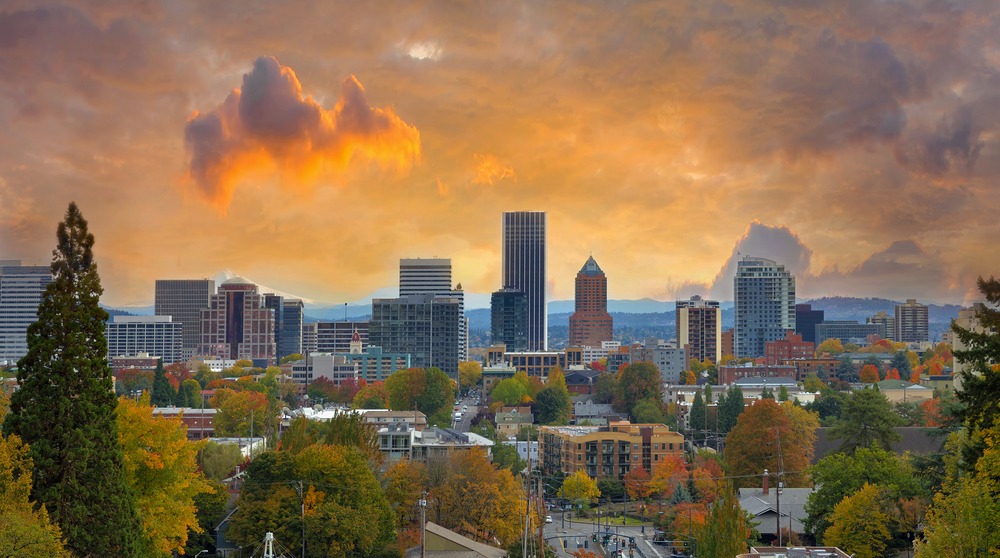
The 20 Pros and Cons of Moving to Portland, Oregon
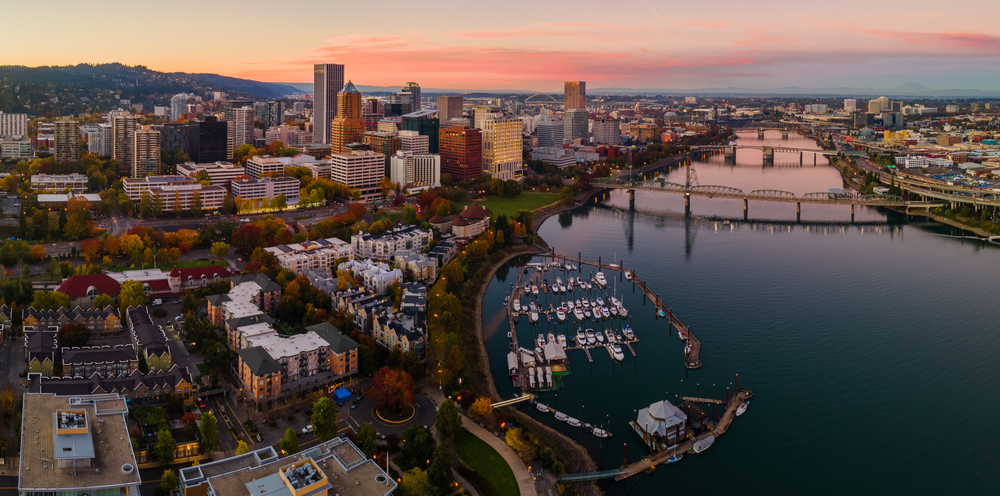
If you’re thinking about moving to Portland, you might be wondering about what to expect on the West Coast. Sure, the city has a penchant for whimsy and creativity—but what’s it like living in Portland on a day-to-day basis?
To help answer that question, we’ve rounded up a list of 20 pros and cons of moving to Portland—with thoughts on parks, parties, neighborhoods, traffic, and more. So, as you consider your next stop, here’s our advice for moving to Portland, Oregon.
The pros of moving to Portland:
- Plenty of green space
- Excellent walkability and robust public transit
- Biking around Portland
- Tons to do all year long
- A city of neighborhoods
- Standout food and beverage scene
- Surrounded by outdoor adventure
- Mild weather (most of the year)
- An outstanding arts and culture scene
- Great coffee shops on almost every block
The cons of moving to Portland:
- It can be tough to make friends
- Worsening traffic
- Pumping your own gas
- Almost too much to do
- Tough housing market
- High cost of living
- Occasionally scorching, smoky summers
- Seasonal affective disorder (S.A.D.)
- An undeniable lack of diversity
- An ongoing homelessness crisis
Here’s more on what to know about moving to Portland.
Pro: Plenty of green space
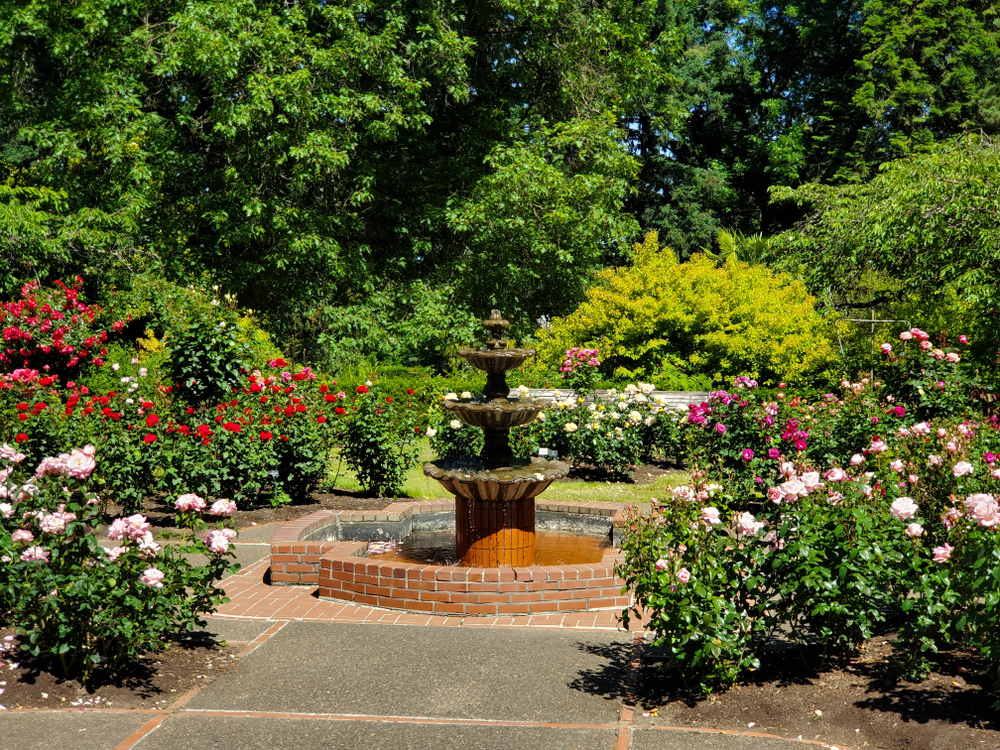
Ask anyone who’s lived in Portland for more than a few days, and they’ll have a favorite neighborhood park. Dozens of public green spaces sit splayed across the city, each offering something unique—not just to that park, but to the city of Portland.
Mill Ends Park, for instance, sits in the middle of a downtown Portland crosswalk and is the smallest park in the world. The eminently walkable (and bikeable) Eastbank Esplanade, meanwhile, hugs the Willamette River and affords sweeping views of the ever-changing city skyline. And Washington Park, the city’s crown jewel, hosts some of the region’s best attractions, including the Oregon Zoo, International Rose Test Garden, Hoyt Arboretum, and the Portland Japanese Garden.
Con: It can be tough to make friends
Outwardly, Portlanders can be friendly to an almost disarming degree: When the grocery store clerk asks how your day is going, they mean it! But that doesn’t always translate into making new friends.
It’s nothing personal, either. It’s just that many established Portlanders have their tight-knit circle, keep busy on the weekends, and tend to stick around their Portland neighborhood or a particular area.
So, if you want to find a new friend circle while in town, consider getting active around the community. A number of 20- and 30-somethings, for instance, participate in kickball, dodgeball, and other activities put on by Underdog Sports Leagues.
Or, if you’re into soccer, the Timbers Army (the passionate supporters group of the MLS’ Portland Timbers) and the Rose City Riveters (the energetic fanbase for the Portland Thorns of the NWSL) routinely offer volunteer opportunities and gameday watch parties around Portland.
Pro: Excellent walkability and robust public transit
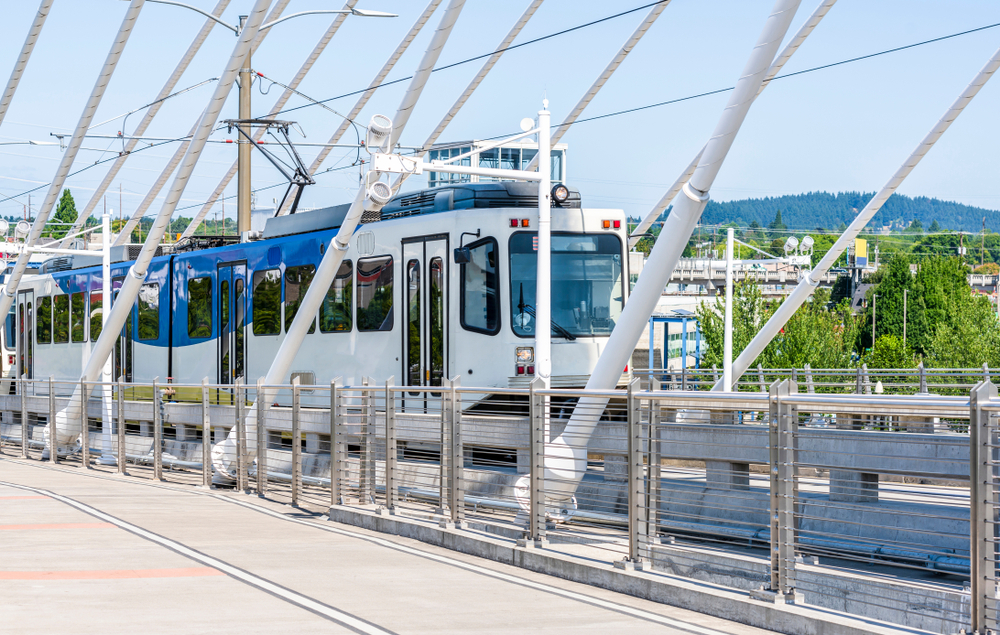
One of the best things about moving to Portland, OR, is that you can walk almost anywhere—and if you can’t walk and want to go car-free, the city’s mass transit makes it easy to get around.
For starters, Portland is a mostly flat community with compact city blocks, an intentional design choice that created a more pedestrian-friendly downtown core and gave more businesses coveted corner lots. And with so many bustling neighborhoods across Portland, you’re never far from the fun, with plenty of craft breweries, live music venues, and chic art galleries to go around.
The city’s mass transit system has long been lauded for creativity and effectiveness, as well. A sprawling network of TriMet buses, streetcars, light-rail trains, and even commuter rail crisscrosses the city with regular service that begins early and doesn’t end until after last call. In fact, one of Portland’s newest bridges—the instantly iconic Tilikum Crossing—is only open to mass transit, pedestrians, and cyclists.
Con: Worsening traffic
When people ask, “Should I move to Portland?” one of the first considerations is traffic. And there’s no getting around it: Traffic around the Portland metro area can be an arduous slog at rush hour, which can begin before 2 p.m. and end well after 7 p.m. on most weekdays—especially if you’re crossing the Willamette River or Columbia River (where I-5 heads into Washington).
But here’s the upshot: Chances are good you won’t need to cross the Willamette River at rush hour if you’re working and living in a fun neighborhood full of great bars, restaurants, stores, and parks. And it could be worse—at least we’re not Seattle!
Pro: Biking around Portland
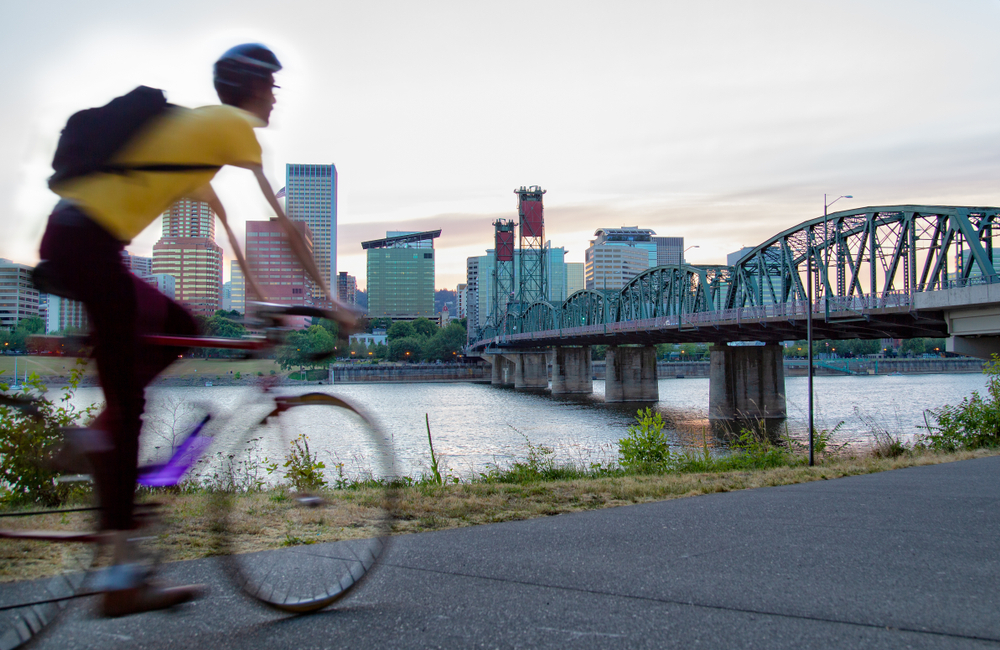
If the thought of stifling traffic has you worried, fear not: Portland is one of the most bike-friendly cities in the United States. The city’s Biketown bike-share system makes it easy to grab a ride wherever you are around town, the city government has a webpage chockablock with classic bike routes, and BikePortland documents all the changes in Portland’s cycling community while sharing upcoming events. And that’s to say nothing of Portland’s protected bike lanes or inner-city bridges built exclusively for cyclists and pedestrians.
Con: Pumping your own gas
This may be more of a “pro” for some, but Oregon is one of two states where you’re not allowed to pump your own gas. While there are some exceptions in rural communities around the state (mostly along the Oregon Coast and east of the Cascade Range), you’ll have to rely on friendly attendants throughout the Portland area.
Most of the time, it’s no big deal. But it can induce more than a little stress when you pull into your neighborhood gas station minutes after it closed. And, if an Oregon gas station is short-staffed at rush hour, you might have to wait longer than you’d like.
Pro: Tons to do all year long
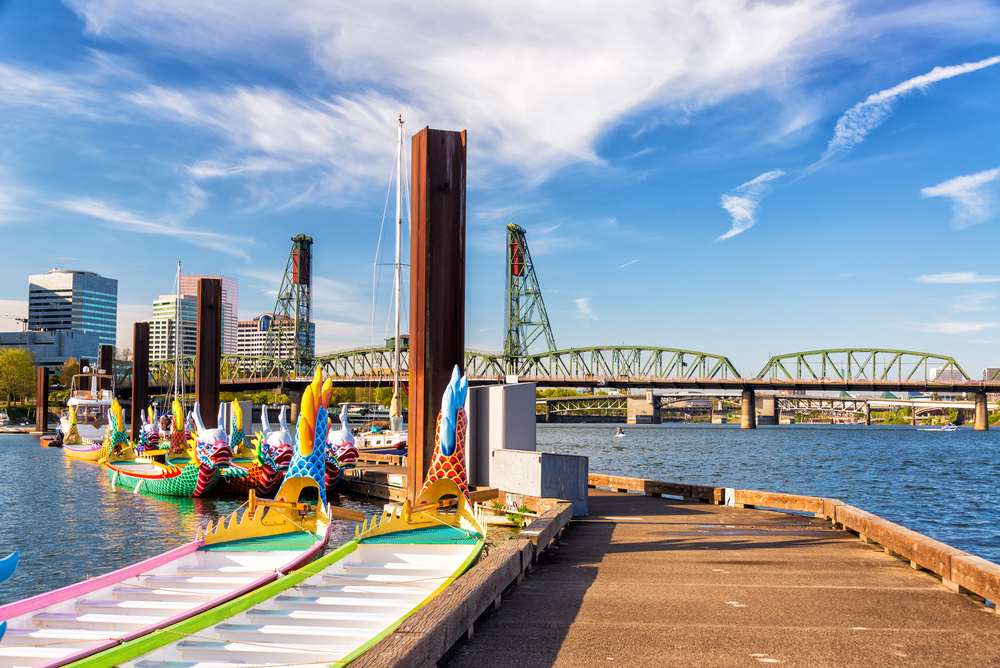
One of the many joys of moving to Portland, Oregon, is getting to indulge in the city’s myriad fairs, festivals, performing arts events, and other fun happenings throughout the year. Every July, for instance, the Oregon Brewers Festival brings together dozens of the state’s top breweries for a fun weekend on the Willamette River waterfront. Pedalpalooza routinely features fun, free cycling events all summer long (including the World Naked Bike Ride, where up to 10,000 cyclists get as bare as they dare—and ride through city streets in a raucous celebration).
Learn about other events in Portland, and start planning your time in the city now.
Con: Almost too much to do
Admittedly, this is kind of like saying you work too hard when a would-be boss asks you about your weaknesses. But FOMO is real in Portland.
On any given night, you are probably missing out on a release event for your new favorite beer, a pop-up dinner from one of Portland’s lauded chefs, a live concert at your neighborhood venue, a frenetic festival on the Willamette River waterfront, or other happenings around town. It’s a good problem to have, but it’s still a problem.
Pro: A city of neighborhoods
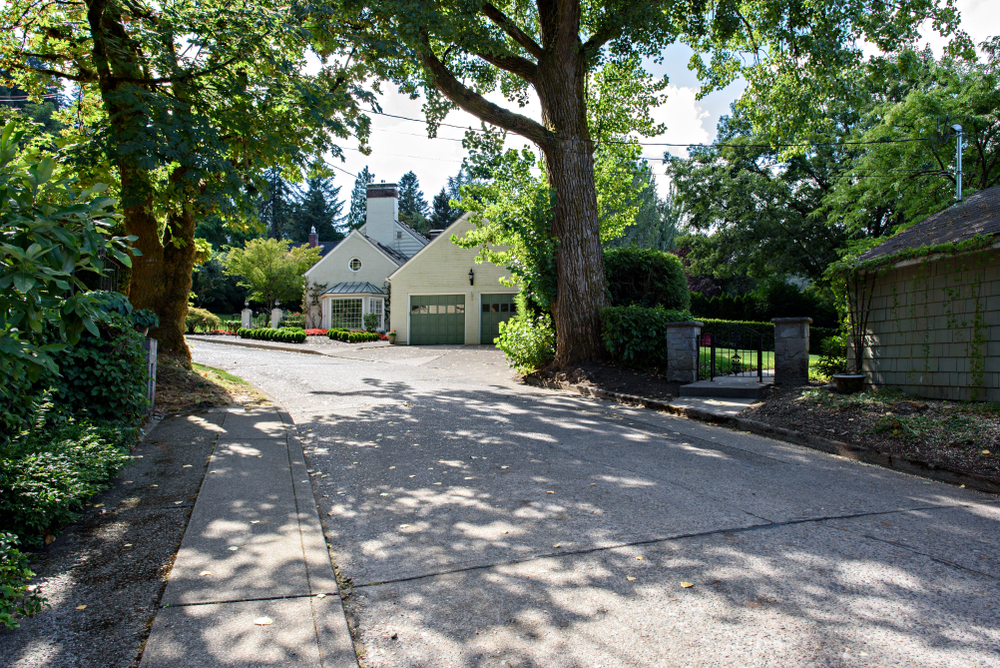
In most cases, when you want to explore the cultural, physical, and emotional heart of a city, you head downtown. But that’s not the case in Portland, where corner bars, mom-and-pop restaurants, local food trucks, and other attractions create a kind of gravitational pull around each neighborhood. You could spend months along Hawthorne Boulevard or Mississippi Avenue and still not enjoy all that neighborhood has to offer.
Don’t get us wrong: Downtown isn’t without its charms. But chances are good you’ll find plenty to love around your own corner of Portland.
Con: A tough housing market
Portland has grown wildly in recent years, and its housing market has been among the country’s hottest over that stretch. Even with new apartment complexes for rent opening seemingly every day, rental vacancies remain near historic lows and housing prices remain out of reach for many of the creative types who helped make Portland, Oregon, part of the cultural zeitgeist.
Fortunately, if you’re choosing to rent an apartment, Landing makes it easy to bypass complex applications, shoddy landlords, and rocketing housing costs with fully furnished apartments and flexible terms. Learn about the benefits of a Landing membership today.
Pro: Standout food and beverage scene
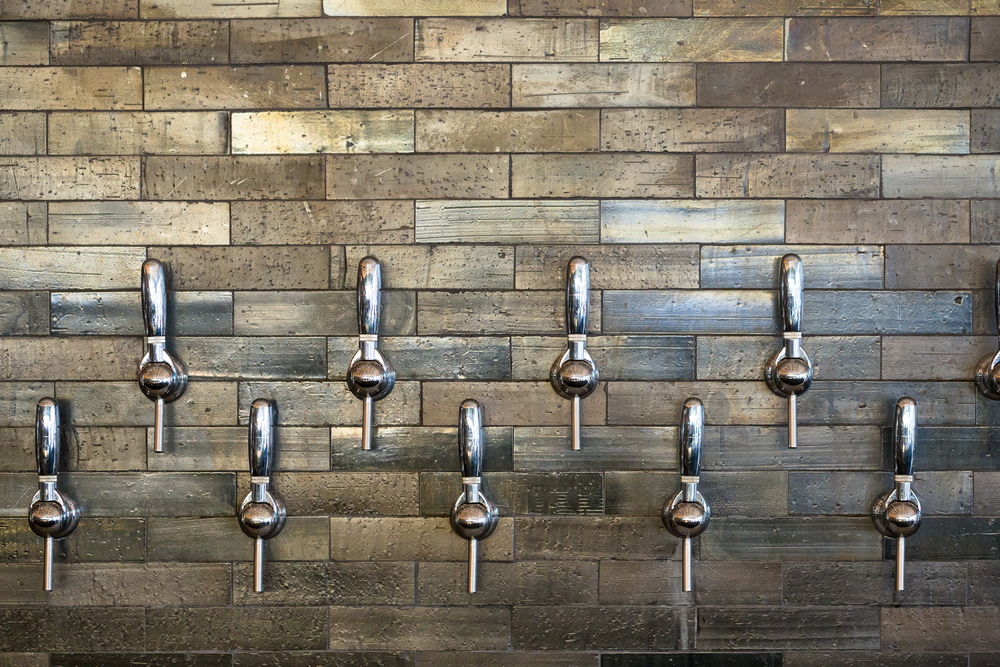
One of the great things about moving to Portland, Oregon, is that you never need to have a bad meal or pair it with a bad beverage. Indeed, it’s easy to enjoy meals across cuisines—typically crafted with fresh, farm-to-table ingredients—with inventive dishes dreamed up by creative chefs and passionate purveyors.
If you need help navigating this fantastic food scene, a few websites round up the best of the best. Food Carts Portland, for instance, helps you find the food cart pods for which Portland is so well-known. Eater Portland routinely rounds up the city’s best restaurants and offers ideas for your next favorite meal. And New School Beer covers the city’s lauded beer scene (and broader craft beer news throughout the Pacific Northwest).
Con: High cost of living
You don’t have to pay top dollar for an incredible meal, but that doesn’t mean it’s cheap to live in Portland, either. Official numbers and comparisons are tough to come by, but Portland typically features higher-than-average costs for everything from apartments to food and beverage. You certainly get what you pay for—there’s a good reason that barbecue platter costs $20 or more at your favorite food cart—but the high costs are undeniable.
There’s another silver lining that helps take the sting off Portland’s high cost of living: You won’t pay sales tax at the brewpub or boutique you patronize after you move here. Oregon has no sales tax, so what’s on the price tag is what you’ll pay.
Pro: Surrounded by outdoor adventure
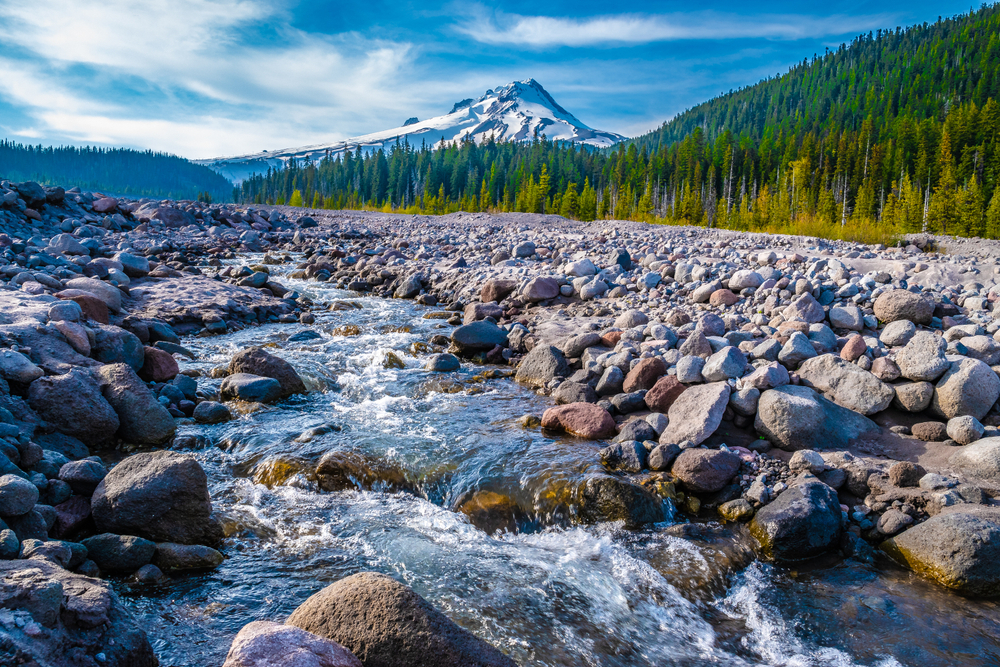
If you want to get outdoors and see some of the area’s most beautiful sights, you have plenty of options for doing so—sometimes without leaving the city. Forest Park, for instance, is a massive oasis in the heart of the city that hosts dozens of miles of hiking trails through lush forests and offers occasional views of the city from high above.
Just a short drive or bus ride from downtown, Tryon Creek State Natural Area is Oregon’s only state park within a major metro area. The park hosts wildlife all year long and some of the city’s best wildflower displays in spring.
And that’s to say nothing of the Columbia River Gorge National Scenic Area or the Mount Hood National Forest, where you can enjoy hundreds of miles of hiking trails, scenic campgrounds, resplendent waterfalls, sweeping viewpoints, and a lifetime’s worth of natural beauty—all just a short drive east of the city.
Con: Occasionally scorching, smoky summers
In recent years, climate change and regional wildfires have taken a toll on Portland’s once dreamy summers.
First, yes: Data shows that Portland summers are getting warmer. The city is seeing, on average, more 90-degree days each summer than it did just a few years ago—and trends don’t show any sign of slowing down. So, if you’re going to spend a sunny Saturday in August lounging around food cart pods and brewpub patios, consider slathering on an extra layer of sunscreen.
Unfortunately, that’s not the only factor plaguing Portland summers. Wildfire season can begin as early as mid-July and last well into September, with smoke drifting into the Portland area from as far away as Canada and California.
If there’s a silver lining, it’s that wildfires offer an opportunity for an impromptu getaway for many people living in the area. The Oregon Coast typically avoids the worst of the wildfires, for instance, and Bend and Central Oregon may sit under sunny skies while Portland and the Willamette Valley are socked in with smoke.
Pro: Mild weather (most of the year)
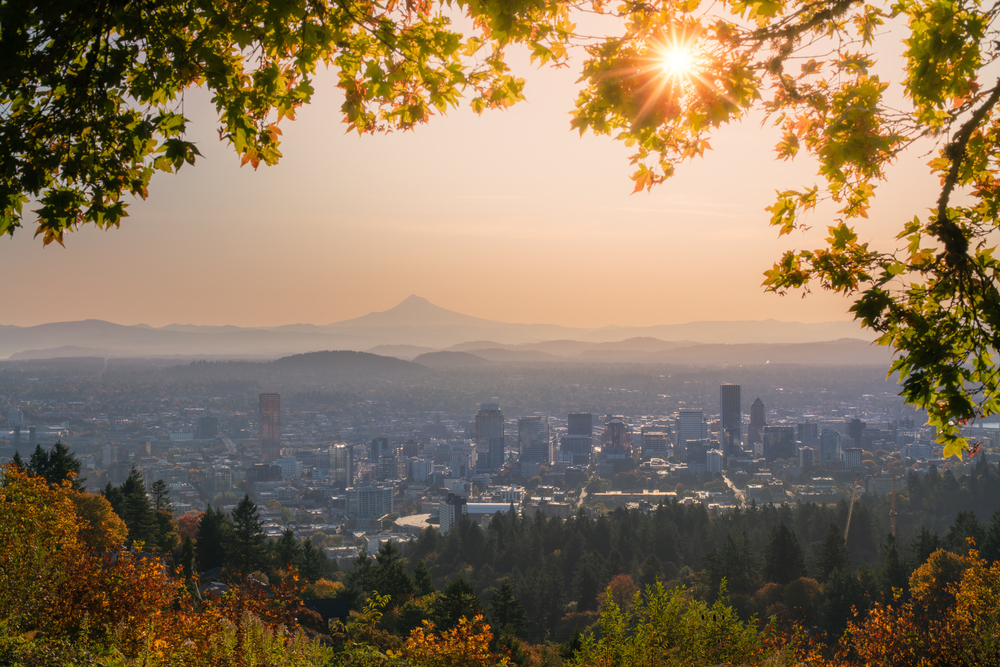
Okay, so wildfire season bums us all out. But there’s a lot to love about the climate in Portland, which is known for being pretty mild, no matter the season.
First and foremost, that rain you’ve heard so much about? It’s not so much the rain itself as it is the dreary skies above. Portland gets about 36 inches per rainfall each year, which sounds like a lot until you consider that New York City gets nearly 47 inches per year, or that Miami gets a whopping 62 inches annually. The difference is that Portland experiences precious few downpours—and far more showers throughout the day. In between showers, most of us live with moody gray skies or blissful sun breaks.
And as spring turns to summer or summer turns to fall, Portland enjoys mostly pleasant weather. September and early October—noted for crisp mornings and sunny afternoons—are some of the nicest months of the year for late-season or early-fall hiking, paddling, biking, and other outdoor activities around Portland and throughout Oregon.
Winter in Portland could be a whole lot worse, too. Snowfall is rare and typically short-lived when it does arrive, and nighttime lows rarely dip below freezing. You’ll put up with a lot of rain, but winter doesn’t stop most Portlanders from going about their daily lives—they just might need to bundle up a bit when they head out.
Con: Seasonal affective disorder (S.A.D.)
While it’s technically true that winter in Portland is mild, that doesn’t account for the dreary nature of the season—and the impact that has on the people who move here.
There are stretches of fall and winter, especially in November, December, and January, where you may go several days without seeing the sun. In its place, an omnipresent gray cloud cover hangs over the city’s skies like a fitted bedsheet—lending a muted vibe to an otherwise vibrant community.
It’s the kind of weather that inspires Portland residents to cope with seasonal affective disorder (S.A.D.)—basically, a listless, “blah”-like depression brought on by the arrival of winter. We all feel it in some way, and we all have our own ways of coping—like making an extra effort to see our friends and loved ones or investing in a light box that mimics the sunlight we so desperately crave.
Chances are good you’ll feel the blues as winter approaches, but it doesn’t have to become a debilitating experience as you adjust to your new home.
Pro: An outstanding arts and culture scene
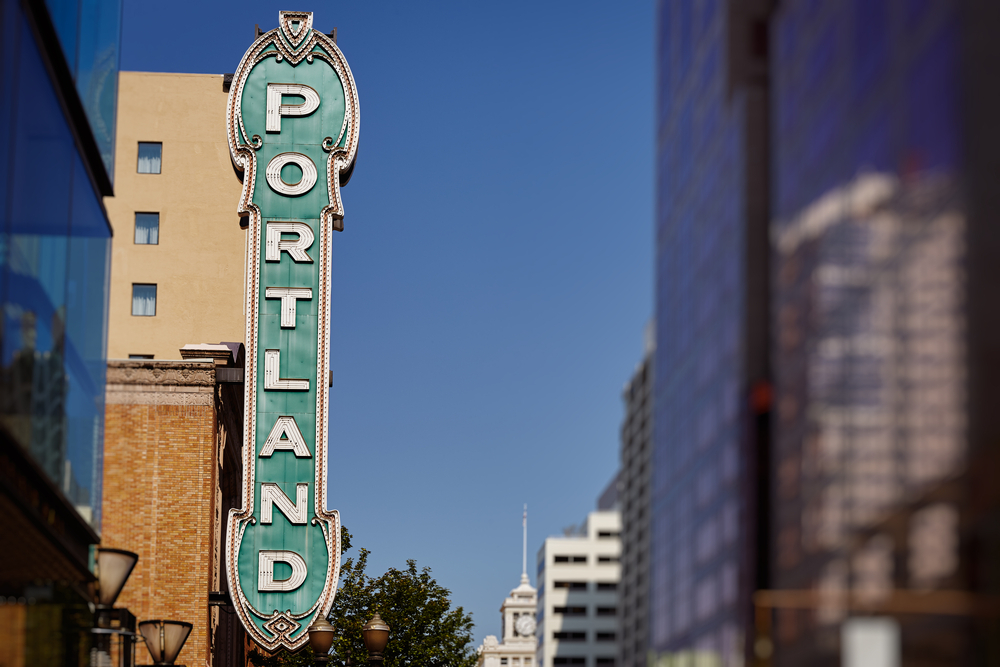
Portland is home to a local arts and culture scene that offers something for all residents. The Oregon Symphony, for instance, performs work by classical composers—along with legendary film scores. Powell’s City of Books hosts author readings almost every night of the week. The Portland’5 Centers for the Arts is a collection of venues in the heart of the city that host standup comedians, dance troupes, touring musicians, and a host of other performers throughout the year. And the list goes on.
Of course, world-class talent doesn’t always show up on the biggest stages or under the brightest lights. Mississippi Studios is an intimate venue that routinely hosts up-and-comers alongside established musicians, while Last Thursday is a summertime celebration along Alberta Street that shows off the work of local artists, handcrafted goods from neighborhood vendors, and other slices of homegrown Portland.
Con: An undeniable lack of diversity
Oregon is an extremely homogenous state—more than 75 percent of all Oregonians identify as white—and Portland follows suit, with about 70 percent of Portlanders identifying as white. No less than The Atlantic has called Portland “the whitest city in America.”
So, while you won’t see the kind of diversity you might in Seattle or San Francisco, things are slowly changing. As a whole, the city is less white than it was 10 or 20 years ago, and other groups are finding homes around Portland. Portland has long boasted a thriving queer community, and progressive attitudes abound in businesses around town.
Pro: Great coffee shops on almost every block
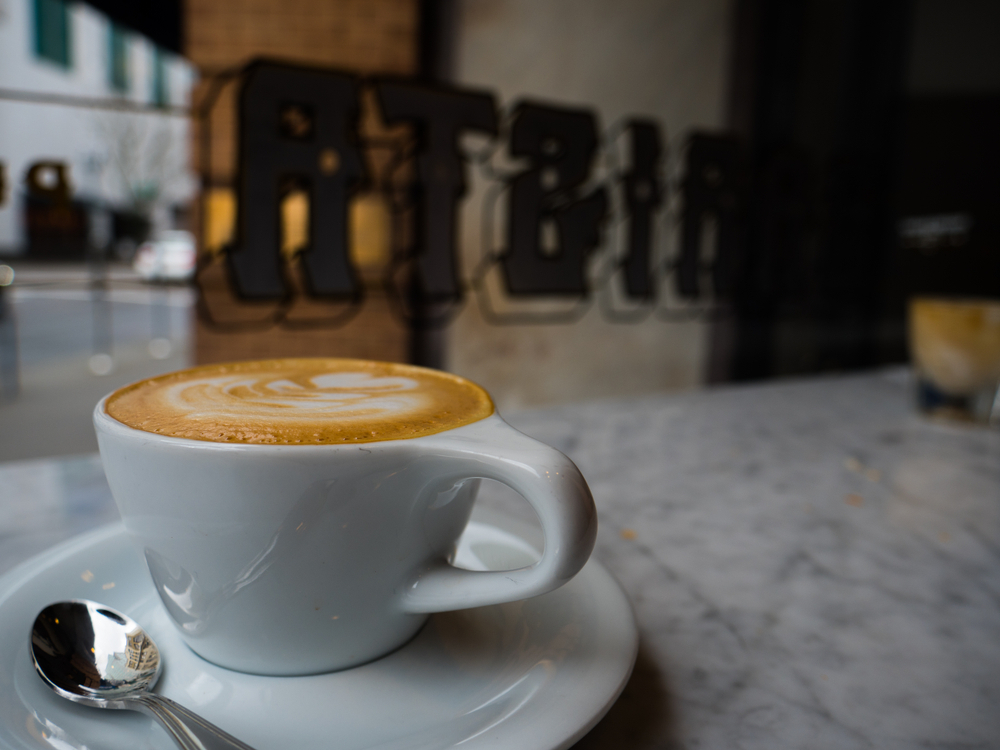
If you’re a Landing member, chances are good you’re a digital nomad who appreciates working from quality coffee shops while on the move. Portland has long been known for its vibrant coffee scene, and that’s translated into cozy cafes, spacious gathering spaces, and other spots that make the perfect office for the day.
Barista, for instance, hosts a cafe that boasts an ornate walnut bar and plenty of seating in the midst of the hip Alberta Arts District. Coffee Time, meanwhile, is a Portland mainstay and is as popular among residents for its spacious seating indoors as it is for the games of chess always going strong on its tables outdoors.
Con: An ongoing homelessness crisis
Unfortunately, this list would be incomplete without acknowledging a certain grim reality: For years, Portland (and, more broadly, Oregon) has faced a homeless crisis that shows few signs of abating.
It’s clear the problem will take a citywide effort to address, and volunteering to help those in need can become one of the meaningful highlights of your time in Portland. Whether you’re here for a couple of months or several years, consider donating time, money, or both to community organizations working day and night to make a difference.
A few of our favorites include:
- Blanchet House, which offers clothing, hygiene items, and recovery programs.
- Portland Homeless Family Solutions, which helps families facing homelessness and helps them find housing.
- Operation Nightwatch, which operates two drop-in centers around the city.
Learn more about other volunteer opportunities with local nonprofits.
Ready to make the move to Portland?
If you’re planning on heading to Portland and are looking for an apartment to rent, learn about how a Landing membership can help you find the right neighborhood, score a fully furnished apartment, and enjoy a flexible lease—all so you can make the most of your time in the city.
